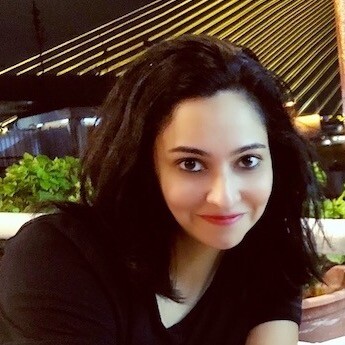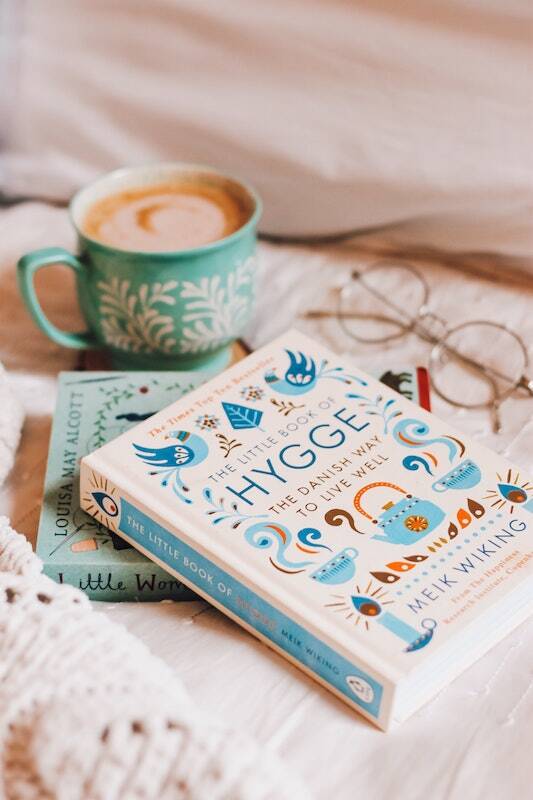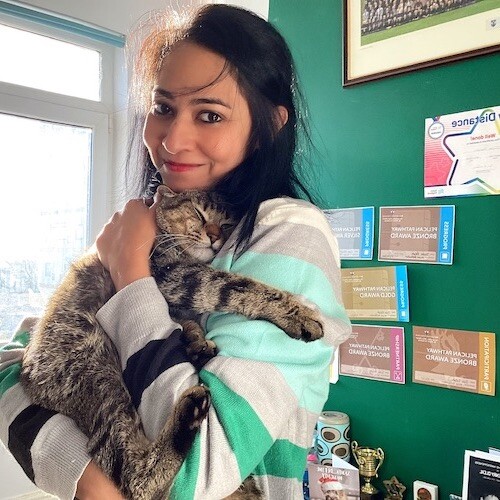IN THIS ISSUE
- From the Editor’s Desk: Marie Kondo-ing my business
- New on The Wordling: Setting and meeting freelance income goals
- News & Views: The one area of nonfiction that’s doing particularly well

FROM THE EDITOR’S DESK
Hiya writer friends,
I’ve been saying for years that I want to have more fun in my business. That it’s pointless to be self-employed if you’re just going to repeat the same shitty patterns you fell into when you were in a full-time job, and that if you feel imprisoned by your clients and your work, what is even the point of all of this?
I’m pleased to say I’m having more fun in my business than ever before and that every day, decision-making around the writing and the selling gets easier and easier. Money was never my highest value, but I often made sensible decisions based on what would be the most profitable thing to do in my business, even if it sometimes made me feel like shit.
I don’t live like that anymore.
Much like Marie Kondo, I’ve taken to asking, “Does this bring me joy?” If yes, keep it, value it, do more of it. If not, it’s time to thank it and let it go.
I’m no longer available to give my time, my energy, and my efforts to projects, people, and situations that do not bring me joy and do not aid in my growth. I have grown up and lived in too many abusive environments to not appreciate that the freedom and agency I now have over my life is also a responsibility to share.
To show my son that there is another way.
I cannot teach it if I don’t live it.
The world wants my son to know that he needs to have a job, backup options, enough education that if his dream of YouTube gamer or standup comedian doesn’t pan out, he can find something “sensible” to pay the bills.
I want my son to know that this is scarcity thinking and that scarcity thinking leads to a life of scarcity.
I want my son to know that while I didn’t know a single self-made millionaire growing up, I know several now, that I had a Zoom call with one just last night and that he spent half an hour brainstorming with me. That this kindness to me, and the other entrepreneurs this man supports, is only possible because he has money (and a good heart), and that if he were struggling to pay his bills, all the good he could do in the world would not be possible.
I want my son to know that money is not inherently good or bad.
That being creative enables you to make more, not less, of it.
That the question should never be “How do I pay my bills?” but “How do I want to spend my days?”
That he may still have to work shitty jobs and take on low-paying work to get to his dreams, but as long as his focus is on loving his life and not just paying bills, his creativity, his discipline, and his good instincts will lead him there.
The best decision I ever made in my career was turning down an offer to become the editor of a national magazine at age 22 and instead, go traveling around the country in pursuit of a freelance journalism career. My corporate bosses offered me a promotion and three times my salary, and were horrified when I handed in my resignation a week later.
But I knew, even at age 22, that the wrong kind of growth would be a trap that I would spend the rest of my life trying to claw my way out of.
Instead, I chased the career that I wanted, that I knew I could love.
It hasn’t been easy. Some weeks and months, it’s been utterly, insanely hard.
I’d do it all over again in a second, because while the journey may have its overwhelming ups and heartbreaking downs, it has allowed me to build a life on my terms, with belief systems that work for, and not against, me.
It is why I am here, day after day, talking about it with you.
This is not just a career we’re building here, but a life. And I want you to know that yours can, and should, always belong to you.
Enjoy the issue!
Natasha Khullar Relph
Editor, The Wordling
NEW ON THE WORDLING
The Ultimate Guide to Setting and Meeting Income Goals as a Freelancer
While external factors are certainly important, I believe knowing what you want to earn and need to earn is essential in learning how to price yourself and navigating through what’s acceptable for your business and your stage of freelancing.
That all starts with setting income goals. Here’s how to go about doing that.
NEWS & VIEWS:
New in nonfiction: Solutions-focused publishing

Nonfiction book sales have plateaued, according to the Publishers Association’s A Year in Publishing Report. However, despite the “non-fiction market’s struggles against streaming channels, the cost of living crisis and depleted attention spans,” one area of nonfiction is doing particularly well: Solutions-based publishing.
The Bookseller wrote about this phenomenon earlier this month, with top agents and editors sharing what they think will be the hot trends in publishing over the coming year:
Jonny Geller, chief executive of Curtis Brown: “We are looking for stories to compete with the best Netflix documentaries and need specialists or unique voices to prove to readers it is worth spending so much time with a book.”
Caroline Sanderson, associate editor of The Bookseller and recent chair of the Bailie Gifford Prize: “It’s now almost impossible to publish a book of nature or travel writing which doesn’t also grapple with the climate crisis in some way. Just as I think the market has moved on from memoirs that don’t weave in bigger social themes or issues such a mental health.”
Jack Fogg, agent at DunnFogg Literary: “People are looking more towards books to solve or help them with certain issues.”
Ed Lake, non-fiction director at Weidenfeld & Nicolson: “History feels like the ‘buy gold’ of a cautious market as far as the kind of books I publish are concerned and consequently auctions are going quite high.”
Liane-Louise Smith, rights director at Madeleine Milburn Literary, TV and Film Agency: “There’s also been a lot of interest around AI and a number of publishers have big titles coming out in this area.”
Read the full Bookseller piece here.
ALSO SEE
All she wanted to do was write. After winning the Nobel prize in literature, she couldn’t.
This clause in your publishing contract could cost you thousands of dollars.
A new survey shows that half of newsrooms are already “actively working” with generative AI tools like ChatGPT.
Salman Rushdie is writing a book about being stabbed on stage, an attack that left him without sight in one eye.
GLOBAL REPORT
UK: British Vogue has released its first ever Braille issue. “Produced in collaboration with leading sight loss charity, the Royal National Institute of Blind People (RNIB), the May edition is the first in a year-long campaign where all issues of British Vogue will be available in audio and Braille formats.”
BULGARIA: “Georgi Gospodinov isn’t just the first Bulgarian writer to win the coveted International Booker Prize—he’s the first to even be nominated. Gospodinov’s prize-winning novel Time Shelter, translated by Angela Rodel, imagines a “clinic for the past” in which different floors reproduce different decades in minute detail, allowing patients with Alzheimer’s to revisit the past.”
DENMARK: “Denmark’s #MeToo wave appeared later than in many countries, and came from the media sector. The Fix spoke to Ida Herskind, a journalist at leading Danish daily broadsheet newspaper Politiken, about how they kept the conversation focused on women’s stories, not the oppressors.”
CURRENT MOOD

Natasha and Harry hanging out at home.
QUOTE OF THE WEEK
“Abandon the idea that you are ever going to finish. Lose track of the 400 pages and write just one page for each day, it helps. Then when it gets finished, you are always surprised.”
– John Steinbeck
SHARE THE WORDLING
The Wordlings are doing their numbers and wrapping up targets for the first half of the year. Share The Wordling with a writer who is, like us, making a final push towards those goals.
